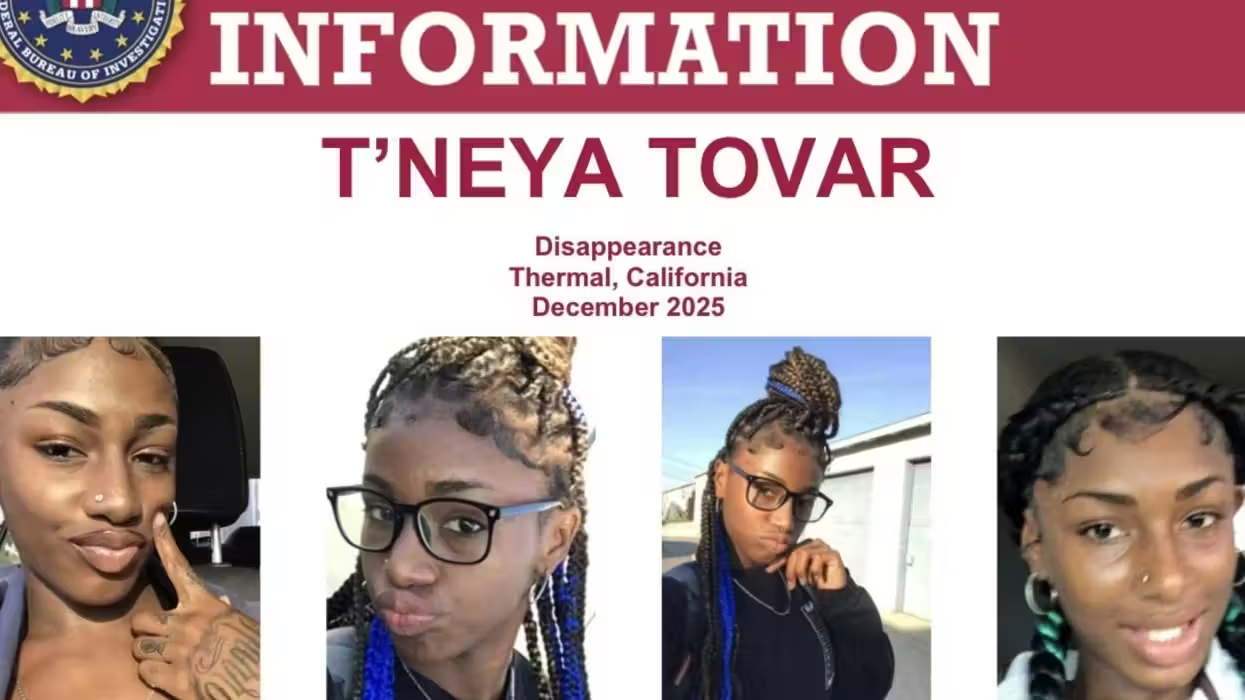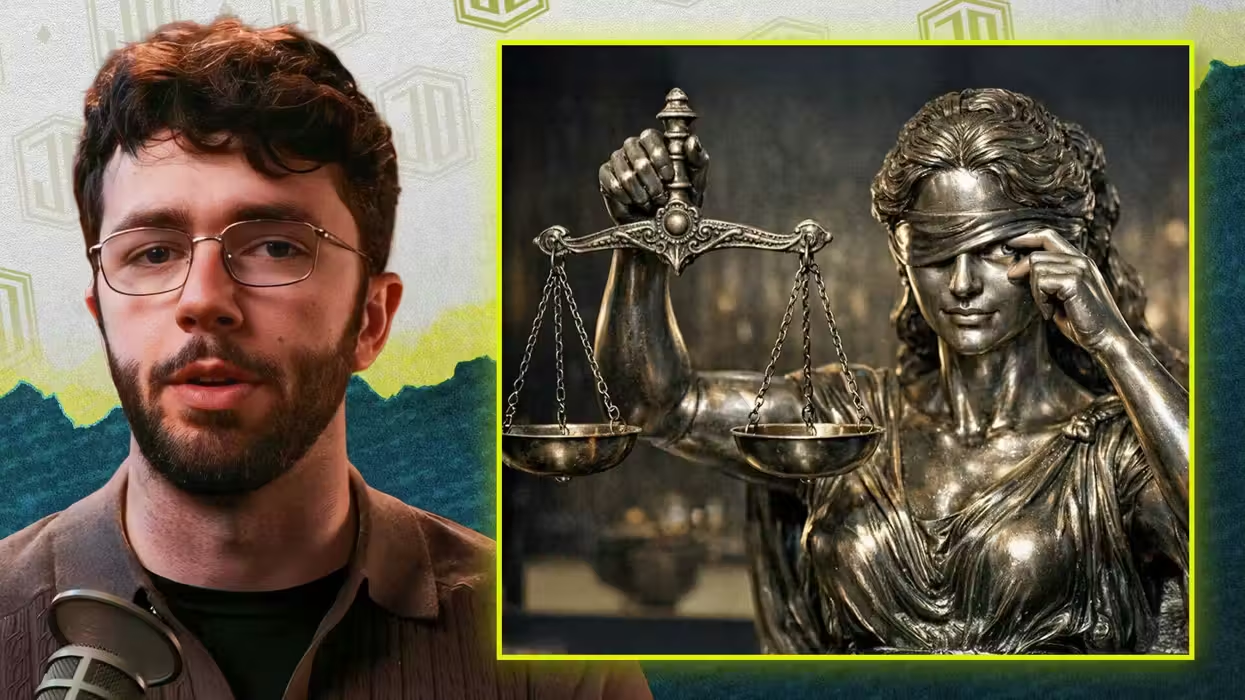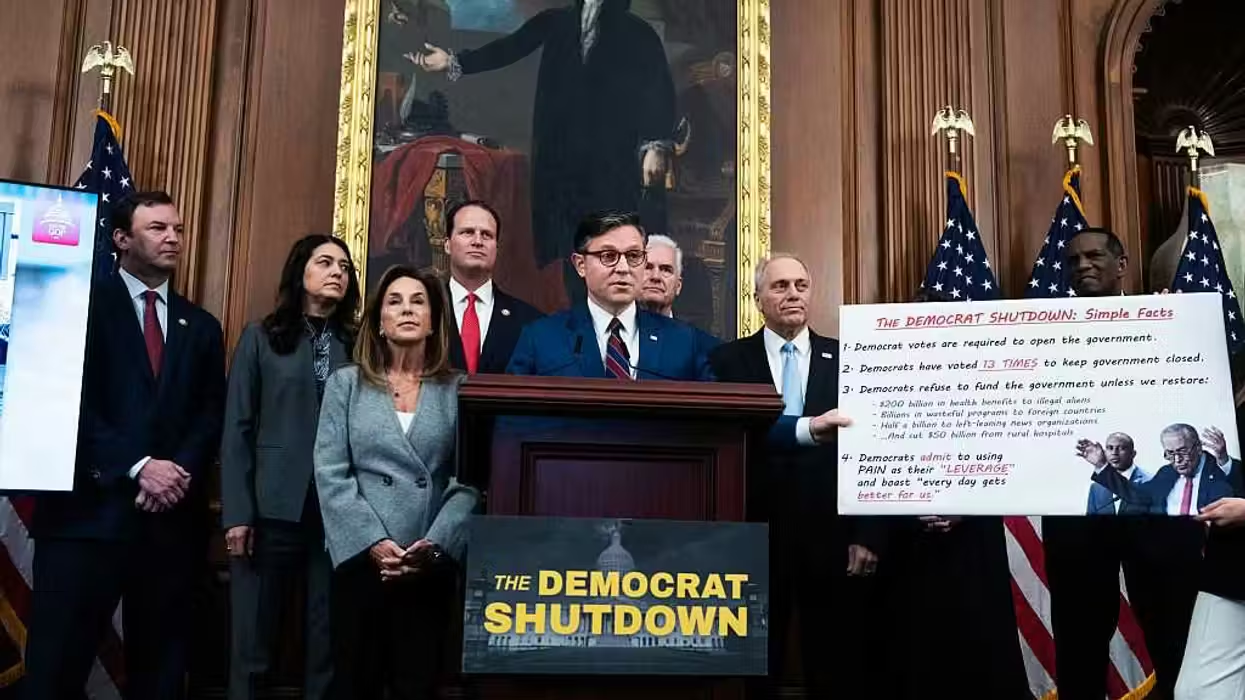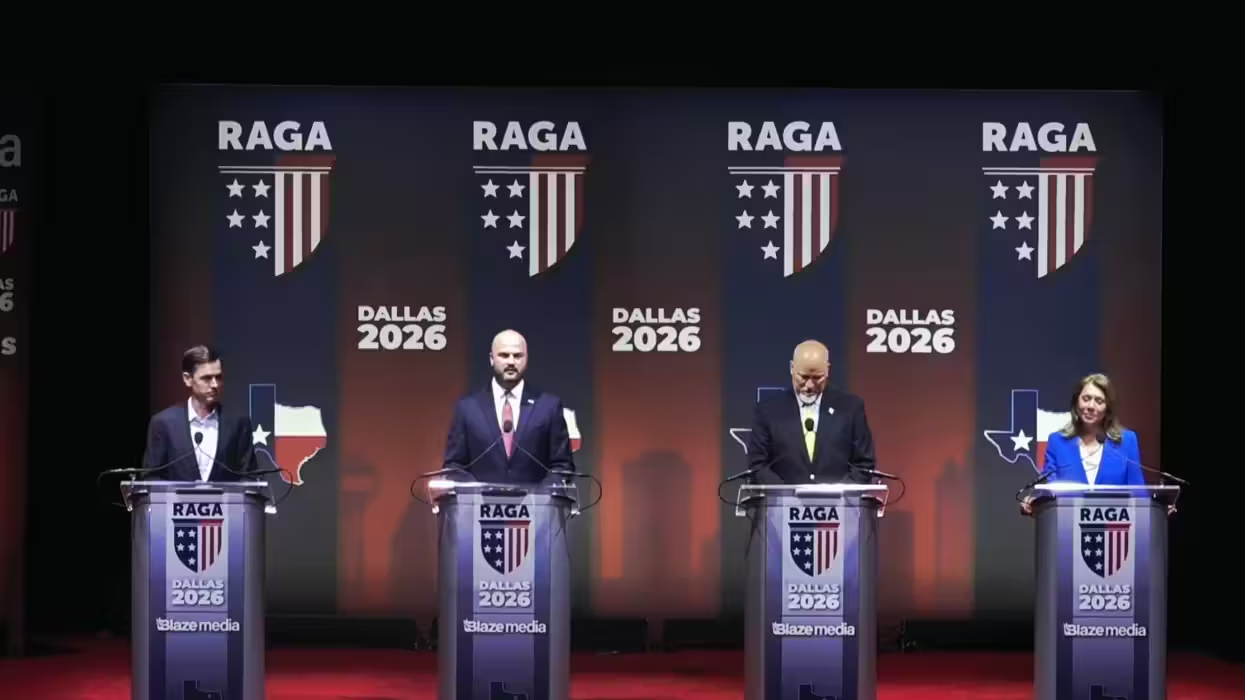
© 2026 Blaze Media LLC. All rights reserved.
Non-Theist Soldier Wants U.S. Army to Officially Recognize Humanism as a 'Faith' Group
February 08, 2012
"To me, this is an individual right."
RALEIGH, N.C. (The Blaze/AP) -- Soldiers who don't believe in God can go to war with "Atheist" stamped on their dog tags, but humanists and others with various secular beliefs are still officially invisible in the Army.
Maj. Ray Bradley is currently to be the first humanist recognized as a "distinctive faith group leader" by the Army. In the meantime, he can't be designated as a humanist on his official records or dog tags, although he can be classified as an atheist.
The distinction may not seem like a large one to those unfamiliar with humanism, but the Fort Bragg-based officer says it's the equivalent of being told that "Christian" is an acceptable designation, but not "Catholic."
"Humanism is a philosophy that guides a person," Bradley said. "It's more than just a stamp of what you're not."
Humanism's core beliefs range from the assertion that knowledge of the world is derived from observation and rational analysis to the conviction that working to help others also promotes individual happiness.
The issue is another sign of the growing willingness of military personnel at Fort Bragg and other military bases to publicly identify themselves as atheists, agnostics, humanists or otherwise without belief in a supernatural higher power and seek the same recognition granted to Christians, Jews and other believers.
"There are a lot more people with these beliefs than just Major Ray Bradley, but he's in a position where he can stand up and put in a request for this," said Jason Torpy, president of the Military Association of Atheists and Freethinkers and an Army veteran.
Bradley, a veteran of the war in Afghanistan who enlisted in 1986, is respectful and protective of the Army, and careful to say his views are his own. He said he has been a humanist since before he enlisted, when "No Religious Preference" was his only option. Now he feels getting his official records to match his convictions is an important symbolic point.
"There's no regulation that says I can't go downtown and get a set of tags made that say `humanist,' but I won't do that because it won't be on my official record," he said. "To me, this is an individual right."
A petition campaign organized by Torpy's group wants "humanist" and "spiritual but not religious" added to the currently available religious designations.
Bradley said he applied for the change to his record after learning that "atheist" was now an officially recognized choice for soldiers. His request was ultimately rejected by the Army Chaplain Corps, he said, which didn't respond to a request for comment. Bradley believes some of the resistance comes from a lack of familiarity with humanism.
"I don't think the chaplaincy really understands the difference between atheism and humanism," he said.
Humanism goes beyond a simple statement of disbelief in the existence of a deity or deities, said Howard Katz, president of the Humanist Society, which is sponsoring Bradley's application to become a lay humanist leader at Bragg.
"Atheism means just that: you don't believe in God," Katz said. "You could have an axe murderer who's an atheist. Humanists have ethics and a philosophy."
They also have formal "life-cycle celebrations" for occasions like marriages, funerals, even what Katz calls "humanist bar mitzvahs." Founded in 1939 and chartered as a religious organization, the Humanist Society also certifies celebrants to perform the ceremonies, who then have the same legal authority as members of the clergy.
It shouldn't be a surprise that humanists and other non-theists in the military are becoming more vocal, because their civilian counterparts are doing the same thing, said Penny Edgell, a sociologist at the University of Minnesota who studies American religion.
"There are lots more organizations for atheists, agnostics and humanists now than there used to be," she said. "This is an emerging identity."
The organization of non-theists parallels the mobilization of conservative religious believers in American society, Edgell said. As one group asserts its identity, the other feels the need to respond.
"People are aware that if you're going to claim it, you have to claim it more strongly," she said. "There's kind of a cycle of mobilization."
The Army currently has no humanist chaplains or laypersons authorized to perform limited chaplain duties, a position roughly equivalent to a deacon or elder in a Christian church. A soldier at Fort Meade, Md., has also filed the paperwork seeking the designation, which is a more formal process in the Army and Navy than in the Air Force, where a humanist lay leader is stationed at MacDill Air Force Base, Fla., according to Torpy.
Bradley sees his role as essentially organizing the humanists at Fort Bragg and securing a regular meeting place, for listening to speakers or just gather to talk about their experiences.
"I don't want to make it sound too religious," he said with a laugh, after catching himself using the word "congregation."
"A minority is always much bigger than what's visible on the surface until they're accepted by society," he said. "Once people realize that their neighbors are part of this minority, and they're just regular people like anyone else, they become accepted."
That's important if non-theists continue to grow in the larger society, said David Segal, director of the Center for Research on Military Organization at the University of Maryland. Surveys vary, but between 15 and 20 percent of Americans now don't identify with any particular religion, although not all of those people are non-theists.
"There is that trend in society, and we strive to have our military as representative of our society as possible," he said. "That's part of the reason the right to serve became so important for blacks, and then women, and then gays. You've got that added dimension of military service being a hallmark of citizenship."
The Blaze has extensively covered non-theists and their quest for religious recognition. One non-believer is planning to build an atheist temple and some soldiers are pushing for atheist military chaplains. These, of course, are only two additional examples. As time progresses, there will surely be others.
Want to leave a tip?
We answer to you. Help keep our content free of advertisers and big tech censorship by leaving a tip today.
Want to join the conversation?
Already a subscriber?
Billy Hallowell is a digital TV host and interviewer for Faithwire and CBN News and the co-host of CBN’s "Quick Start Podcast."
Billy Hallowell
Billy Hallowell is a digital TV host and interviewer for Faithwire and CBN News and the co-host of CBN’s "Quick Start Podcast."
more stories
Sign up for the Blaze newsletter
By signing up, you agree to our Privacy Policy and Terms of Use, and agree to receive content that may sometimes include advertisements. You may opt out at any time.
Related Content
© 2026 Blaze Media LLC. All rights reserved.
Get the stories that matter most delivered directly to your inbox.
By signing up, you agree to our Privacy Policy and Terms of Use, and agree to receive content that may sometimes include advertisements. You may opt out at any time.







